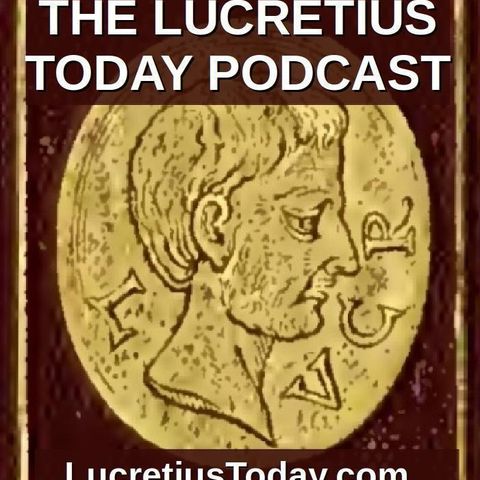Episode 135 - Letter to Menoeceus 02 - On The Nature of The Gods

Welcome to Episode One Hundred Thirty-Five of Lucretius Today. This is a podcast dedicated to the poet Lucretius, who wrote "On The Nature of Things," the only complete presentation of...
show moreToday we continue our discussion of Epicurus' Letter to Menoeceus, this week discussing the Epicurean gods. Now let's join Martin reading today's text:
Bailey:
[123] The things which I used unceasingly to commend to you, these do and practice, considering them to be the first principles of the good life. First of all believe that god is a being immortal and blessed, even as the common idea of a god is engraved on men’s minds, and do not assign to him anything alien to his immortality or ill-suited to his blessedness: but believe about him everything that can uphold his blessedness and immortality. For gods there are, since the knowledge of them is by clear vision. But they are not such as the many believe them to be: for indeed they do not consistently represent them as they believe them to be. And the impious man is not he who popularly denies the gods of the many, but he who attaches to the gods the beliefs of the many.
[124] For the statements of the many about the gods are not conceptions derived from sensation, but false suppositions, according to which the greatest misfortunes befall the wicked and the greatest blessings (the good) by the gift of the gods. For men being accustomed always to their own virtues welcome those like themselves, but regard all that is not of their nature as alien.
Hicks:
[123] Those things which without ceasing I have declared unto thee, those do, and exercise thyself therein, holding them to be the elements of right life. First believe that God is a living being immortal and blessed, according to the notion of a god indicated by the common sense of mankind; and so believing, thou shalt not affirm of him aught that is foreign to his immortality or that agrees not with blessedness, but shalt believe about him whatever may uphold both his blessedness and his immortality. For verily there are gods, and the knowledge of them is manifest; but they are not such as the multitude believe, seeing that men do not steadfastly maintain the notions they form respecting them. Not the man who denies the gods worshipped by the multitude, but he who affirms of the gods what the multitude believes about them is truly impious.
[124] For the utterances of the multitude about the gods are not true preconceptions but false assumptions; hence it is that the greatest evils happen to the wicked and the greatest blessings happen to the good from the hand of the gods, seeing that they are always favourable to their own good qualities and take pleasure in men like unto themselves, but reject as alien whatever is not of their kind.
Comments

Christos Tsigaridas
1 year ago

Christos Tsigaridas
1 year ago

Christos Tsigaridas
1 year ago
Information
| Author | Cassius Amicus |
| Website | - |
| Tags |
-
|
Copyright 2024 - Spreaker Inc. an iHeartMedia Company
